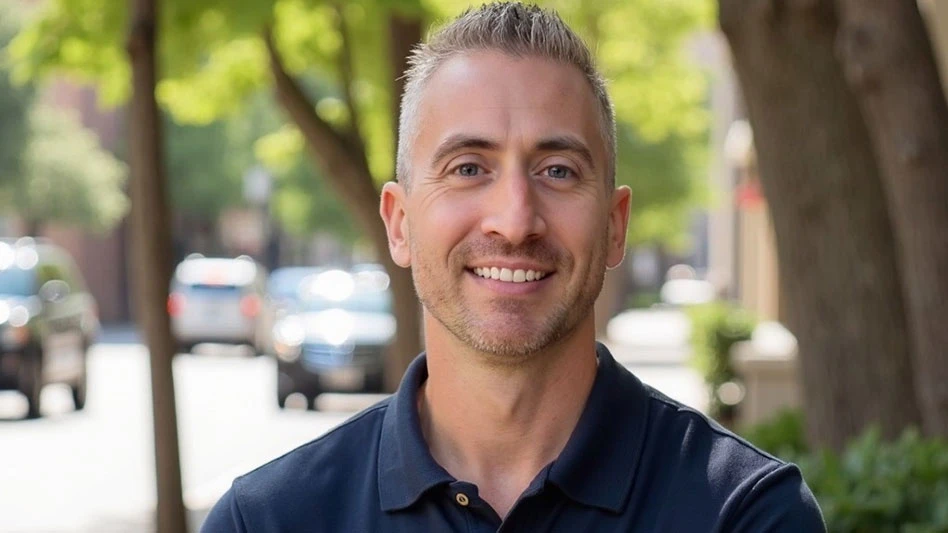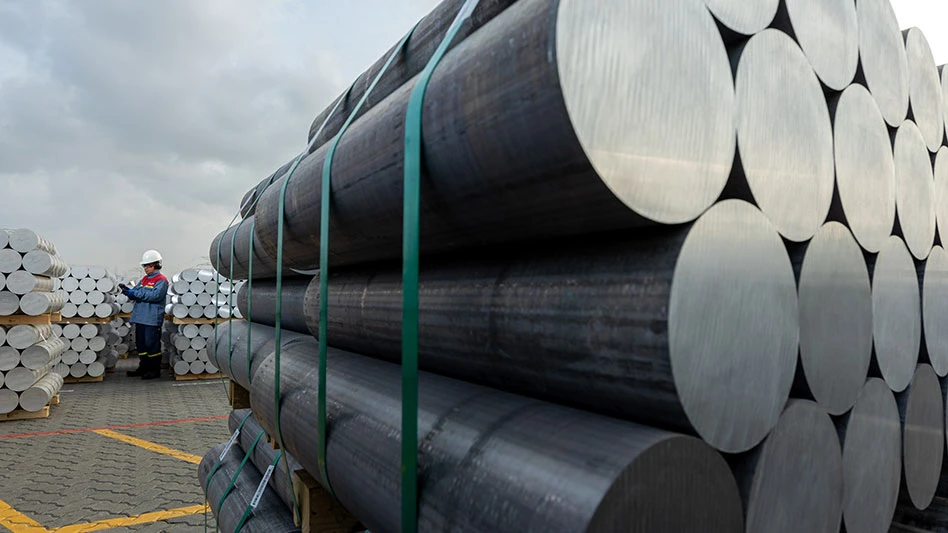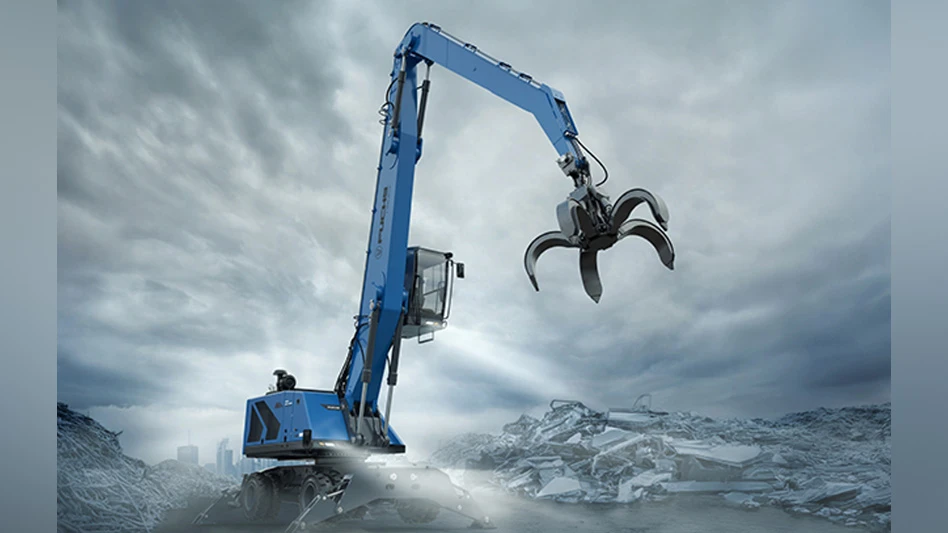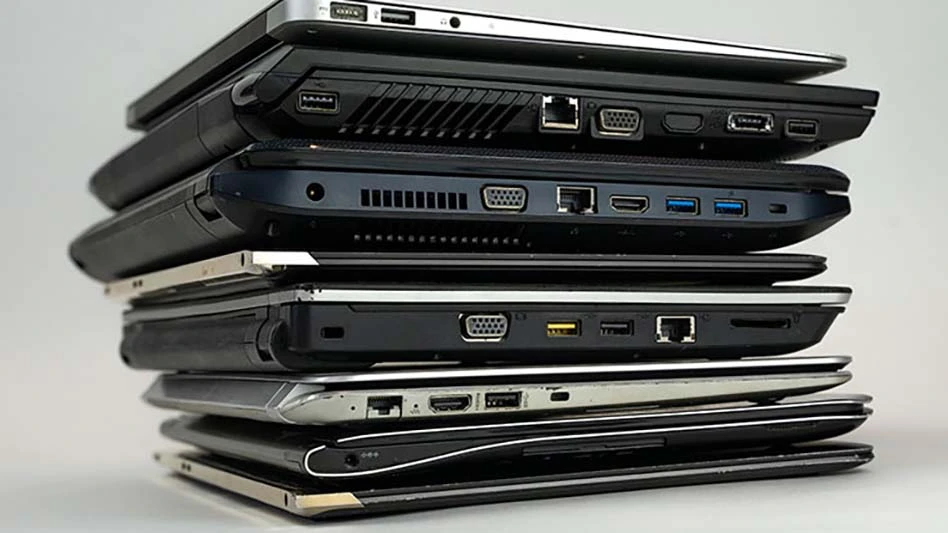Among the root words that make up the term consolidation is the word solid. Unfortunately, consolidation performed too quickly can lead to entities that are anything but solid, as has been seen in any number of industries in the last quarter of a century.
When performed correctly, however, consolidation can create long-lasting market leaders-a fate that appears far more likely for OmniSource Corp., Fort Wayne, Ind.
With 1,350 employees and projected 2000 revenues of $830 million, OmniSource is almost certainly among the three largest scrap recycling companies operating in North America.
The company's appearance at the top of the charts is not the result of a frenzy of acquisitions or the injection of investment capital. Rather, OmniSource started out as and remains a family-owned company with a founding story similar to dozens or even hundreds of others that have taken place within the North American scrap industry.
A Small Loan and a Truck
The company that became OmniSource was started in 1943, when Irving Rifkin borrowed enough money to begin collecting and reselling scrap items working from his truck. "He bought scrap from a machine shop, from filling stations-anything he could turn around and make a profit on, including rags and paper," says Leonard Rifkin, Irving's son and current chairman and CEO of OmniSource.
"After awhile, he built up his routes and needed another truck, and eventually was able to borrow $7,500 from an uncle to buy a yard in Fort Wayne," says Leonard. "I joined full-time in 1956," he continues. "My uncle, my father and I worked on growing the company and making it one of the best operating companies in Fort Wayne-at a time when there were 36 dealers in a town of 100,000 people."
The company very much remains a family business. Leonard's son Danny is president and chief operating officer. "When Danny graduated from college, he had other opportunities, but he determined that he liked the business and he came along and joined in," says Leonard.
Two other sons, Rick and Marty, are executives of the company. Rick, who joined the company after college, is president of the Nonferrous Operating Group. Marty, who completed law school before entering the business, is president of the Nonferrous Specialty Group.
Building a Family Business
Leonard Rifkin and other corporate officers use a word that owners of other family scrap businesses also use to describe why their business has survived through several generations: commitment.
"We were committed to the building of the business, rather than the concept of trying to take the money out of the business," says Leonard Rifkin when asked about a prevailing philosophy. "We wanted to build something for our families that could some day be considered one of the top companies in the U.S."
Leonard and others are quick to point out that the commitments made have extended beyond the Rifkin family. "It started with my dad that we have a very strong feeling toward anyone associated with us-employees, trusted advisors and customers," Leonard remarks. "As the company was smaller, it was easier to be more like family. But we have tried to maintain that philosophy as much as we can today, even with more than 1,300 people."
"It has to be remembered," says Leonard, "that the major part of our successes over the last 15 to 20 years has not been because of one person, but because of everyone who was committed to doing the job."
Vice president of administration Ben Eisbart says the company makes a diligent effort to retain the family atmosphere. "The company really has an uncommon regard for people. Even though we have 1,350 people, the door is always open for anyone-people in the yard or senior managers-to talk to Leonard or Danny. There's a paternal feeling here no matter how large the company gets."
The philosophy has helped bring stability to a company facing rapid changes within its own industry as well as severe competition for labor in a tight market. "The atmosphere is a tremendous plus when recruiting people," says Eisbart, "and it's one reason our turnover rate is just 2% in this incredibly competitive environment."
"We have a significant number of employees who have 10+-years of service, and many who retire after 30 or 40 years with the company; we're very proud of that," says Danny.
The family approach to doing business can also extend beyond the property boundaries, notes Rick Rifkin.
"The Rifkin family has been very close, therefore our business philosophy has reflected that," he says. "We've all learned early on that you have to do what you say you're going to do-whether talking to an employee or a customer. We've been able to build a straightforward, honest, open management culture because whether it's Leonard or one of the sons, everyone in the company is getting a pretty consistent message. It leads to a lack of conflict."
Extending the Family
In the 1990s, the OmniSource family could easily have experienced growing pains, as the company made several acquisitions and made a number of aggressive moves to expand its presence in the industry.
It was before the 1990s-in 1979-that a key acquisition created the foundation for OmniSource Corp. In that year, the Rifkin family's Superior Iron & Metal acquired Kripke-Tuschman Industries, Toledo, Ohio. In the early 80s, the growing company was re-named OmniSource.
Then, from roughly 1996 to 1998, the consolidation frenzy seized the scrap industry. Before, during and after that period, OmniSource was making acquisitions of its own that the company's officers say were strategic in nature and designed to offer long-term growth potential.
Among the key acquisitions the company made between 1997 and 1999 were:
The operations and personnel of the companies have been integrated fully into OmniSource Corp. and operate under the names: OmniSource Indiana Group, OmniSource Northern Ohio Group, OmniSource Mid-Ohio Group, OmniSource Non-Ferrous Operating Group, and OmniSource Non-Ferrous Specialty Group.
"Each location or group of locations has an operations manager who works closely with the managers in other operating regions," says John Marynowski, president of the Indiana Ferrous Group. "We try to standardize our equipment and procedures so we can move equipment and people between locations and not miss a beat," he adds.
Cooperation between groups is a key to making sure things get done profitably, says Marynowski. "We will take material to the location that logistically makes the most sense, even if it is purchased by someone from a different office. We've taken down those walls of one division versus another."
"Our strategy has been to continue growing in a very, very careful manner," says Leonard. "Throughout the consolidation process, that's been our style. We've been very careful about acquisitions and we integrate newly purchased companies very quickly," he remarks. He contrasts the strategy with other consolidation efforts by "some other companies who acquired too quickly and leveraged their companies too thin."
"Part of our core strategy has been to continuously grow our metal unit volume within a broad regional area," notes Danny. "For many years, our approach had been to do this in a concentric fashion relating to Fort Wayne and Toledo, so that we could leverage our management, human resources, and key support services like transportation to integrate those acquisitions quickly."
"During the consolidation period," Danny continues, "we had been approached by most of the public consolidators to become part of their roll-ups or consolidations. Though some of those deals would have yielded good value to the shareholders, we didn't think at the time that any of the situations was right for the long-term good of the company or our employees."
Wider Opportunities
In addition to growing through acquisition, OmniSource has also grown by forging partnerships with generators and consumers and by maximizing productivity at its processing facilities.
The term "adversarial relationship" turns up far too often when the scrap industry is analyzed, particularly when examining scrap processor and steel mill relations.
OmniSource has seemingly turned the adversarial relationship model on its head, working closely and openly with mills, and in one case becoming an equity partner of a steel mini-mill company.
As with any large scrap company, OmniSource buys scrap from an array of sources. "A great percentage of our business is from industrial generators," notes Danny. "But we are active in the wholesale markets with dealers and demolition contractors for the supply of obsolete scrap, especially for the shredding operations," he remarks. "We have a fairly extensive network of retail collection facilities, including community recycling efforts taking in aluminum cans and other grades of ferrous and nonferrous scrap."
Within that supply range have been some innovative arrangements with automakers and their suppliers to process and market prompt factory scrap generated at major stamping facilities. The OmniSource scrap management approach has placed equipment and staff at Chrysler and Ford auto facilities in Ohio, Michigan and Illinois, providing a service to the automakers and a reliable supply of scrap to OmniSource.
"It is a combination of a consulting practice with operations, marketing and capital investment potential-depending on the particular needs of the client," says Danny.
OmniSource pioneered the concept of scrap management as a strategic partnership with Chrysler Corp. in the early 90s. Long-term arrangements have streamlined Chrysler's scrap activities, creating real value in the form of lower costs and increased revenues. Chrysler has recognized OmniSource as a "Platinum Pentastar/Commodity Award" winner for seven consecutive years, making OmniSource the only scrap processor in the world to achieve this distinction, according to Eisbart.
Danny Rifkin adds that the arrangements take place "typically on an open book basis, where the customer is fully aware of all of OmniSource's costs, returns and fees. Therefore, the kind of adversarial relationship or negotiation of month-to-month pricing is eliminated," says Danny. "We are the representative of the customer in the scrap market, in addition to consulting on freight and other matters."
On the mill side, OmniSource has also taken giant steps to reduce any adversarial aspects of the supplier-manufacturer relationship. "Steel Dynamics Inc. (SDI) is an excellent example of an agency relationship, where we procure all the scrap that SDI needs to melt, and arrange transportation and administer scrap supply activities."
OmniSource's incentive to perform for SDI, based in nearby Butler, Ind., is clear: OmniSource is a significant holder of SDI stock, so when SDI prospers, so does OmniSource.
OmniSource has also entered into a close relationship with AmeriSteel Corp., Tampa, Fla. "Through our contract with AmeriSteel, we have installed a shredder on site at their Jacksonville mill, and we are responsible for buying, processing, and delivering processed scrap as feedstock to the mill."
On the nonferrous side, Rick and Marty Rifkin note that OmniSource has entered into contracts with utility and telephone companies to manage scrap by aggregating it, processing it and marketing it. "Those business arrangements have helped us expand our wire chopping operations substantially in the last 10 years," says Rick.
"We take that obsolete wire and cable from throughout the U.S., bring it into Fort Wayne, grind it up and separate the copper and aluminum and sell it to consumers," adds Marty. "Some of the plastics are also recycled on a limited basis," he notes.
OmniSource acquired its wire chopping operations from Toledo-based Kripke-Tuschman in 1979. Marty lived in Toledo and oversaw the wire chopping operations there in the late 1980s, before the equipment was upgraded and moved to Fort Wayne in 1990.
The company's willingness to act as an agent for mills and foundries has enabled it to expand its operations both as a scrap processor and beyond. Brokerage offices in its traditional Midwest market as well as in Atlanta and in Burlington, Ontario, Canada, arrange yard sales, domestic scrap, and the importing and exporting of many different materials. "OmniSource is more involved with importing rather than exporting through our ferrous brokerage group," says Danny. "We're importing and distributing pig iron throughout the eastern half of the U.S., and sometimes bringing in shipments of scrap. We're also buying nonferrous scrap, particularly aluminum, from eastern Europe."
Future Choices
OmniSource's executives offer several ideas on where the company will go next as it seeks to remain a competitive force in the scrap industry.
One noticeable change for the company-seen with the AmeriSteel Jacksonville arrangement and the Atlanta brokerage office-is a willingness to expand beyond its regional scope. "Expansion and growth that takes place in cooperation with our customers is leading us to other geographic regions that will allow us to either make acquisitions in new areas or to open up greenfield facilities to support the growth of our customers," says Danny.
Danny says the company is continuing to look at the Southern U.S. for opportunities, as well as to Latin American markets. "Mexico is a growing market. Really, what may ultimately lead us to Mexico is the base of industrial customers who are building plants and locating in Mexico," he remarks.
No matter what geographic form it takes, growth is a necessity, according to Leonard Rifkin. "There is no question that to retain our position, OmniSource has to continue growing. Standing still won't do it. We're in the process of sifting through acquisition opportunities, and we'll grow in that way and expand beyond where we are today."
Wherever the company goes, it will continue to focus on forging partnerships with both generators and consumers, and will also pay close attention to core operations.
"There's always been a bias here toward investing in processing technology," says Danny. "Although R&D may not be a formal department, the company invests a great deal of time and money in R&D and new processing techniques or new approaches to marketing. This can often result in either a unique process that gives us an edge or in an ability to increase the volume we process."
With sound financial management and a willingness to innovate, OmniSource should continue to grow well beyond its origins of one truck and a capital base of $7,500. RT
The author is editor of Recycling Today.

Explore the November 2000 Issue
Check out more from this issue and find your next story to read.
Latest from Recycling Today
- Update: NAW secures injunction blocking enforcement of Oregon’s EPR law
- Smurfit Westrock to close paper machine at Quebec mill
- Recycled steel sellers get another winter bump
- Century Aluminum Kentucky smelter site to host data center
- Cleveland-Cliffs loses $1.4B in 2025
- Sims swaps assets in Houston area
- CMI names director of sustainability
- NWRA announces 2026 Hall of Fame class





